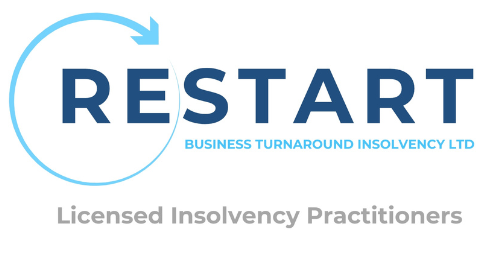
How to Announce the Closure of a Business
Closing a business is never an easy decision, but when circumstances dictate such an action, it’s crucial to handle the process with care, sensitivity, and professionalism. In the UK, announcing the closure of a business requires adherence to specific guidelines and practices to ensure legal compliance, maintain reputation, and mitigate potential risks.
So, how do you announce the closure of a business? Announcing the closure of a business in the UK is a complex and sensitive process that requires careful planning, transparency, and adherence to legal requirements. When insolvency is a factor, seeking the guidance of an experienced Insolvency Practitioner becomes essential. Their expertise can help navigate the intricacies of the closure process, mitigate risks, and ensure that stakeholders are treated with respect and fairness.
By following best practices and avoiding common pitfalls, business owners can uphold their integrity, manage reputational risks, and lay the groundwork for a smoother transition into the next chapter. To help you learn more about the correct protocols to closing your business, the experts at Restart BTi have written this short guide for you to explore. Simply keep reading to learn about the do’s and don’ts of announcing the closure of a business.
Why do business closures need an announcement?
Undoubtedly, the decision to close a business is one that may have other implications. Crafting an appropriate closure announcement is not only about fulfilling legal obligations, but rather a strategic approach that requires a delicate balance between transparency, empathy, and professionalism. A poorly executed announcement can lead to negative perceptions, legal disputes, and even damage to personal and professional relationships.
What is the correct method to announce a business closure?
To help you learn more about the correct protocols involved in announcing the closure of a business, regardless of circumstances, our experts have written a list of do’s for you to explore below. So, the best practices of announcing a business closure include:
- Notifying Relevant Parties: Before making a public announcement, ensure that all relevant stakeholders are informed, including employees, suppliers, customers, creditors, and investors. Timely communication fosters trust and demonstrates respect for their involvement in the business.
- Craft a Comprehensive Plan: Devise a well-thought-out plan that outlines the steps of the closure process, including timelines for different actions. This plan should cover employee layoffs, inventory liquidation, financial settlements, and more.
- Consult Legal Professionals: Seek legal advice to understand your obligations and responsibilities during the closure process. This includes adhering to employment laws, contractual agreements, and statutory requirements.
- Be Transparent and Honest: When announcing the closure, provide a clear and concise explanation for the decision. Honesty will be appreciated by stakeholders and may prevent the spread of inaccurate information.
- Utilise Multiple Communication Channels: Share the announcement through multiple communication channels, such as official company letters, emails, press releases, and social media platforms. This ensures that the news reaches all relevant parties.
- Express Gratitude: Acknowledge the contributions of employees, customers, and other stakeholders who have been part of the journey. Expressing gratitude can help soften the impact of the closure.
What not to do when you announce a business closure
As you can expect, there are also factors you have to consider to ensure that you get this process right. This can include…
- Rushing the Announcement: Announcing the closure without proper planning can lead to confusion, panic, and negative reactions. Take the time to develop a comprehensive plan before making any announcements.
- Blaming Individuals: Avoid blaming specific individuals for the closure, as it can lead to hostility and legal complications. Focus on broader market or financial factors that influenced the decision.
- Withholding Information: Transparency is key. Withholding important information about the closure can lead to rumours and mistrust among stakeholders.
- Ignoring Legal Obligations: Failure to adhere to legal requirements, such as consultation with employees and creditors, can result in legal actions against the business owners.
Disregarding Employees: Treat employees with respect and dignity throughout the process. Sudden layoffs or abrupt announcements can harm morale and damage your reputation.
Why are Insolvency Practitioners needed to assist with the closure of a business?
An Insolvency Practitioner, such as the experts at Restart BTi, are licensed professionals who specialise in handling businesses who are in financial distress. When the closure of a business is due to insolvency – meaning the business cannot pay its debts – an Insolvency Practitioner plays a crucial role in managing the process in accordance with legal guidelines. By working with directors and stakeholders, the process of closure can be streamlined to be a quick and fair process. This can include informing employees in accordance with current employment laws, liquidating assets, negotiating debt settlement and more.
Looking to close your insolvent business? Restart BTi are here to help
The gravity of announcing the closure of your business can feel overwhelming. That’s why Restart BTi is here to help. If your business is struggling with debts, and requires professional help to ensure legal compliance and correct negotiations between creditors, it’s important to seek reliable, honest advice. That’s where our experts come in. We will work with you to ensure all options for your business are explored, and the correct method of closure for your circumstances are enacted. For free, confidential advice, contact one of our friendly team members today, either by phone or through our contact form.

Established in 2018, the directors at Restart BTi have over 50 years of experience to assist companies, business owners and individuals with expert advice and tailored solutions when facing financial difficulties.
